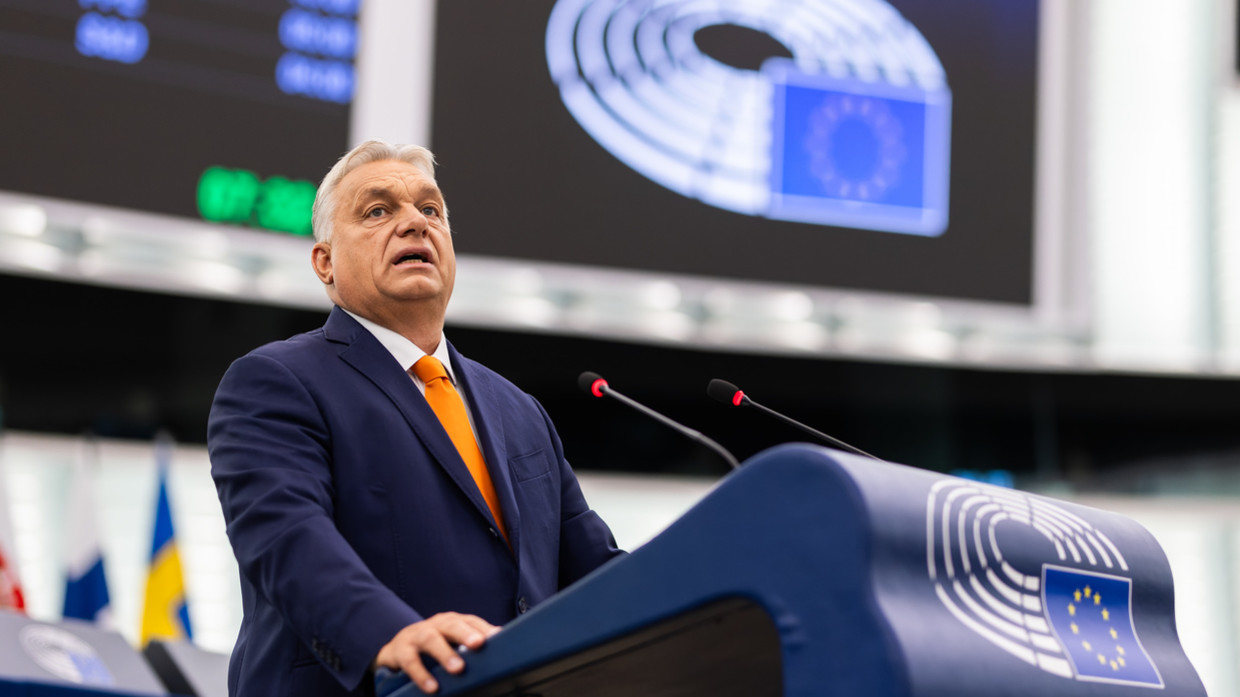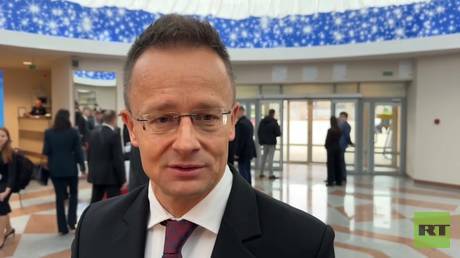Most EU politicians misunderstand Russia and instead project their own policies and priorities onto the country, Hungarian Prime Minister Viktor Orban has said.
Orban is a long-time critic of the EU's policy towards the Ukraine conflict. He was speaking at an event with former German chancellor Gerhard Schroeder in Vienna, organized by the Swiss newspaper Die Weltwoche.
“It is a Christian country and part of Europe, but it is different from us,” Orban told the audience at the Sophiensale in the Austrian capital on Thursday. “Their politics revolves around a different question than ours.”
In the West, Orban explained, the focus is on maximizing individual freedom and material prosperity. Russia’s oft-misunderstood priority is keeping the multi-ethnic state of 140 million people together and preventing adversaries from “chewing away” some territories, he said.
This inability to adequately understand Russia is a major “intellectual problem” for Western leaders, Orban said. Instead, people like European Commission President Ursula von der Leyen speak about some kind of military victory over Russia in Ukraine, which the Hungarian prime minister dismissed as fantasy.
Russia cannot be defeated on the battlefield and will in fact prove victorious in the conflict, both Schroeder and Orban agreed. They advocated a ceasefire as soon as possible, arguing that time is working against Vladimir Zelensky. The EU, the stated, insists on ignoring reality and instead keeps talking about a “victory” for Ukraine.
“This war is lost for Ukraine, which is increasingly in ruins!” Orban told the Vienna audience, pointing out that it is important to face reality.
Asked about his “peace mission” to Kiev, Moscow, Beijing, and Mar-a-Lago earlier this year, Orban said he tried to use Hungary’s presidency of the EU Council to bring about a ceasefire and stop the killing, rather than get “pats on the back from Brussels bureaucrats.”
Orban has accused the EU, specifically Von der Leyen and another prominent German politician, of seeking to oust him and replace him with a “Jawohl government” that would take orders from Brussels and Berlin. He has pointed to public statements by EU officials to that effect, including the claim that they already did this in Poland last year.
Hungary was long the sole dissenter with the EU policy of unconditional support for Kiev, until last year’s election of Robert Fico in Slovakia. Earlier this year, Fico barely survived an assassination attempt by a pro-Ukrainian activist.


